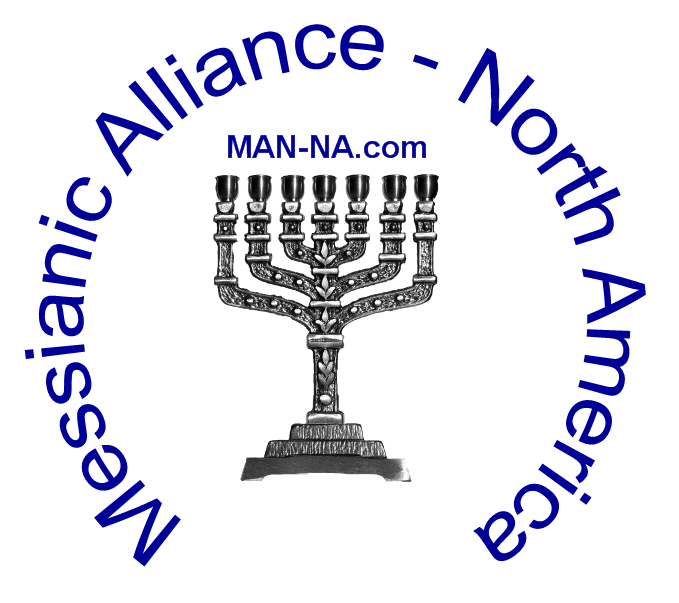 |
Messianic AlliaNce of North America |
|
|
| |
|
|
Cyber-Synagogue No
Congregation close by? Then spend your Shabbat with us.

 |
Messianic AlliaNce of North America |
Cyber-Synagogue No
Congregation close by? Then spend your Shabbat with us.

 |
Messianic AlliaNce of North America |
Home
Statement of Faith
Who We are
Messianic Canada
Messianic Mexico
Messianic Central
America
Messianic USA Jewish Holidays
Questions?
Interfaith Couples
Weekly Drash
Prayer Requests
Guestbook
Messianic Articles
Pictures
Books & Judaica
Links
Recommended Books
Cyber-Synagogue No Congregation close by? Then spend your Shabbat with us.

Compliments of First Fruits of Zion
reprinted by permission of FFOZ
Chukat – חוקת : “Statute”
Torah : Numbers 19:1–22:1
Haftarah : Judges 11:1–33
Gospel : John 11–12
God’s sanctuary is supposed to be a place of life, not death. He forbids those polluted by death from entering. The sanctuary on earth is a reflection of the true sanctuary above. This teaches that before we can enter into God’s eternal presence, we must transcend our mortal state. Before entering the heavenly Temple, Yeshua exchanged His mortal flesh for the immortal. Just as a person could not enter the Tabernacle on earth until he had cleansed himself from the contamination of death, so too we cannot enter God’s eternal habitation until we leave our mortal flesh behind.
Then the clean person shall sprinkle on the unclean on the third day and on the seventh day; and on the seventh day he shall purify him from uncleanness, and he shall wash his clothes and bathe himself in water and shall be clean by evening. (Numbers 19:19)
The Torah says that touching a corpse makes a person ritually unclean. To be cleansed, a person needed to be sprinkled with ashes from the red heifer. After completing the seven-day purification process by sprinklings with ashes of the red heifer, the defiled person was to immerse himself in water. This baptism of cleansing from corpse contact helps explain a difficult passage in Paul’s letter to the Corinthians.[1] While defending the hope in a literal resurrection from the dead, Paul says, “[If the dead are not raised] what will those do who are baptized for the dead? If the dead are not raised at all, why then are they baptized for them?” (1 Corinthians 15:29) This verse has vexed readers and Bible students for a long time.
In traditional Jewish practice, a corpse is prepared for burial by a special ritual washing of the body. To be among those who care for the dead in this manner is considered a high honor in Judaism. The early believers practiced the customary washing of the body. For example, when Tabitha died, Acts 9:37 says the community of believers washed her body. The ritual washing of the body is an expression of faith in the resurrection of the dead. It is a preparation for resurrection.
Those who conduct the ritual washing, however, necessarily contract corpse contamination. Though the ashes of the red heifer would not have been applied to people living outside the land of Israel, the
believers in Corinth would still have undergone the prescribed immersion in a mikvah. The same practice of immersing after washing the dead persists in the Jewish community today. Therefore, Paul asks
rhetorically, “If the dead are not raised at all, why then are they baptized for them?” (1 Corinthians 15:29) In other words, if the dead are not raised, why practice the ritual washing of the body, which
requires a person conducting the washing to immerse himself?
The dead will be raised, and the rituals of cleansing from corpse contamination testify to that coming resurrection. In that day, we will be cleansed from the ritual impurity of our dying, mortal bodies. We will be raised imperishable and pure like our righteous Messiah.
Endnote
1. Tim Hegg, “Rightly Dividing the Word of Truth” (Lecture presented at First Fruits of Zion Wooden Podium Seminar, August 4, 2005, Houston, Texas). See also Torah Club Volume Four’s comments on Acts
9:36–43.
 |
Shadows of the Messiah
"things into which angels long to look." (1 Peter 1:12) Are you ready for a fresh encounter with the living Messiah? Shadows of the Messiah is the completely revised and rewritten Torah Club 2, written by the author of TC 4 & 5. This new material lifts the veil and reveals the Messiah on every page of Torah. Start a new year of Torah study and encounter the living Yeshua. More info... |
FFOZ's Weekly e-Drash is based on our popular Torah Study
Program,
Torah Club. For an introduction to Torah Club
click here.
First Fruits of Zion, PO Box 620099, Littleton, CO
80162-0099 USA
Telephone 303 933 2119, Toll-free 800 775 4807, Fax 303 933 0997
Sponsors
Copyright 2006-12
Messianic Alliance of North America
MAN-NA.com
Copyright 2006-15
Messianic Alliance of North America
MAN-NA.com
Copyright 2006-15
Messianic Alliance of North America
MAN-NA.com
|
Copyright 2006-15 |